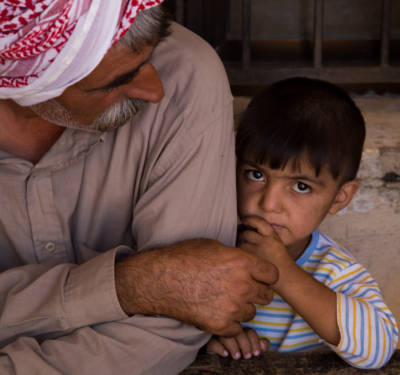The mental effect of violence in Iraq
The ongoing violence in Iraq may be having a serious psychological effect on generations exposed to it.
Published online 30 September 2015

Generations of Iraqis have been subjected to violence and traumatic events over the past few decades.
© ZUMA Press, Inc. / Alamy Stock Photo
Long-term exposure to large-scale traumatic events is associated with mental health problems in Iraqi men, according to new research published in the Qatar Medical Journal1.
Iraq has been consistently subjected to traumatic events—from successive wars and economic sanctions to organized violence and terrorism. However, the psychological consequences of witnessing such events on the population has often gone undocumented.
Maha Al-Nuaimi of Ninawa University in Mosul, Iraq, and her colleagues therefore performed a cross-sectional study to estimate the prevalence of witnessing and experiencing such events, and explore how exposure to continuous community violence contributes to mental health disorders.
They recruited a total of 480 Iraqi men of all ages from Baghdad, the Iraqi capital, and Mosul, the second city—two of the country's “hottest” areas with respect to levels of violence. They then used a standardized questionnaire to assess their level of exposure to violence and screen them for psychiatric disturbances.
The majority (55.4%) of the men sampled reported that they had witnessed violence; 51.4% reported that they had friends or relatives who had been exposed to it; and just under 4% reported witnessing or being exposed to sexual assault.
Nearly three quarters of respondents also reported that their exposure to these events made them feel worried, while 65.4% reported getting easily upset. Over 62% reported suffering from headaches, and just under 60% from lethargy.
Importantly, severe psychological changes were evident in 68.5% of the men sampled, and mild changes in nearly one third of them. These feelings were most often associated with witnessing a shooting or stabbing, being displaced because of the traumatic events, friends' exposure to the events, and the viewing of corpses by roadsides.
The researchers say their study is limited by the security situation in Iraq, which made it difficult for them to obtain a representative sample with a house-to-house survey, and because the assessment of participants' psychological changes were based on self-reported symptoms rather than clinical diagnoses.
Nevertheless, their findings suggest that there is a high prevalence of mental health issues among Iraqi men exposed to violence, which could have devastating effects on their well-being and quality of life in the future.
Reference
Al-Nuaimi, M. A., Hamad, R. A. & Lafta, R. K. Effects of witnessing or exposure to community violence on mental health of Iraqi men. Qatar Med. J. 2015, 10 (2015). | article
DOI: 10.1038/qsh.2015.82

